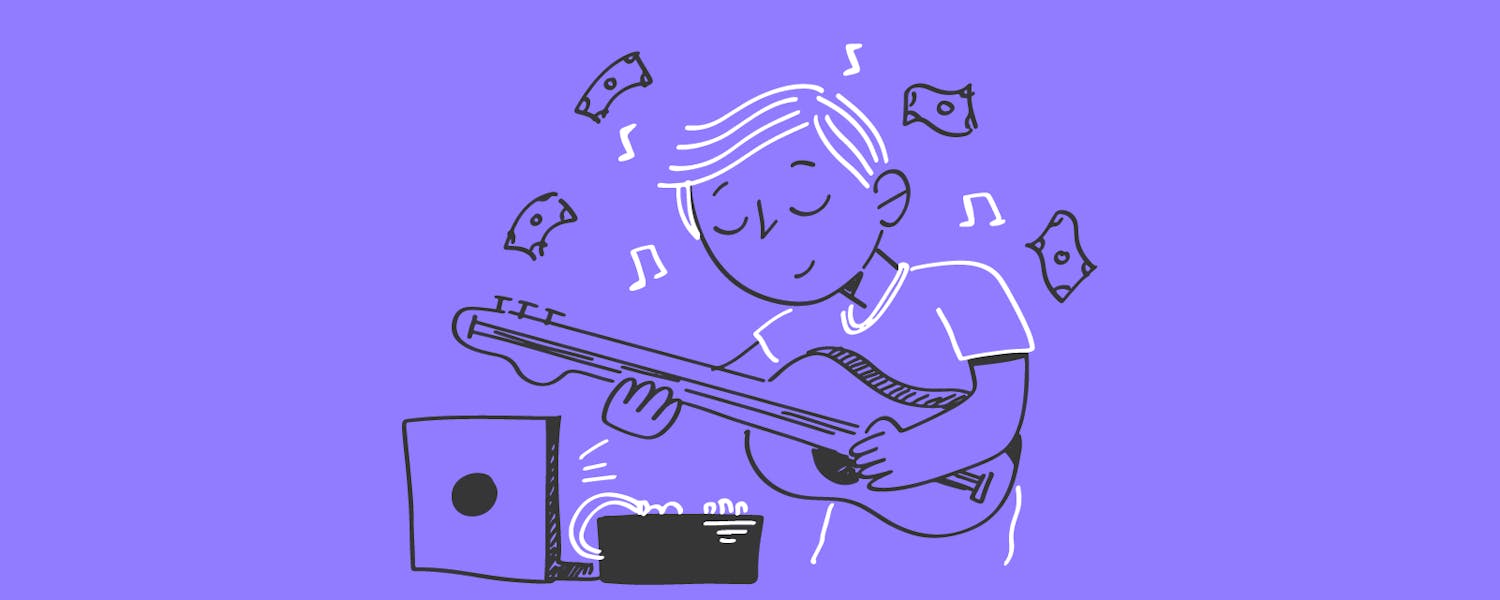Financial Anxiety a State of Mind You Should Avoid
Money is a common worry for most people, even those with high incomes. The key is determining how to handle your finances, deal with anxiety, and control your overall health.
Financial anxiety can cause significant mental and physical health symptoms, exacerbating the problem. Instead, avoiding financial anxiety and making the most of your time here will help you live life to the fullest.
What is Financial Anxiety?
Financial stress can have mental and physical symptoms, interrupting a person's daily life. It can happen with good or bad financial happenings, such as moving, having a baby, losing a job, or falling ill.
Envato/MgrSanko
According to a Mind Over Money study conducted by the Decision Lab and Capital One, 77% of people studied experienced anxiety over their financial situation, and 58% said that finances rule their lives.
Of the people studied, 42% said money made it hard to focus at work, 43% felt fatigued, and 41% said money problems interrupted their sleep.
The problem is that financial anxiety can cause more problems, such as anxiety, depression, high blood pressure, immune system disorders, and even unhealthy weight gain or loss.
What Causes Financial Anxiety?
Now that you know how bad financial anxiety is, let's look at what causes it.
Envato/wirestock
Understanding the causes can help you minimize its effect by handling the issues head-on.
Of course, no two people experience financial anxiety for the same reason. However, here are some common reasons.
- Job loss
- Lack of work or hours
- Increased debt
- Illness
- Divorce or separation
- Death of a loved one
- Bankruptcy or foreclosure
- Mismanaging funds
- Financial infidelity
- Economic uncertainty
What are the Symptoms of Financial Anxiety?
Envato/AtlasComposer
Just as there are many reasons for financial anxiety, the symptoms can vary by person. Some people are affected mentally, others physically, and yet others both physically and mentally.
Mental Health Symptoms
The most common mental health symptoms of financial anxiety include:
- Panic or anxious feelings
- Sleep issues
- Isolation or loneliness
- Depression
- Decreased or increased appetite
Financial anxiety can make people feel guilty for spending money or not having enough money to cover the bills.
Envato/anankkml
It can also cause fear or shame and, of course, stress.
Many people are too embarrassed to discuss their financial struggles, so they keep it in, causing even more mental anguish.
Physical Health Symptoms
Physical health symptoms from financial anxiety can stem from mental health issues or occur separately. Here are some common problems people face:
- High blood pressure
- Excessive weight gain or loss
- Immune system issues (inability to stay healthy)
- Mood swings
- Decreased memory
Envato/Pressmaster
Tips to Manage Financial Anxiety
Financial anxiety may be expected for most people, especially during significant occurrences like job loss or becoming ill. However, there are ways to manage it, keeping the stress to a minimum and helping you keep your eye on the prize.
1. Incorporate Movement into Your Day
Keep your body active to slow down the 'monkey mind.' Take time daily to walk, run, or do any other type of exercise. Even a 30-minute walk in the fresh air can help calm your mind. This may help you think clearer and make better decisions.
2. Create a Budget
You can't manage money without a budget. Think of it like a map of your finances. When you have a working budget, you can see your financial situation, what you can afford, and what must change.
Envato/Hallaarabi
A budget can stop endless overspending, overdraft fees, and any other adverse financial events. Try creating a budget with your significant other or family members to ensure you're all on the same page.
3. Have Regular Money Talks
If more than one person handles your finances, have regular meetings about your money.
This isn't a time to point fingers or blame.
Instead, it's a meeting of the minds and a chance to see where you stand.
Talk about what's going right and what may need some help to fix any financial issues you have.
4. Make an Emergency Fund Priority
Envato/YuriArcusPeopleImages
No matter how much money you make, an emergency fund is a priority for everyone.
Your emergency fund should be enough to handle three to six months of your living costs, including bills, food, and other basic living costs.
If you don’t have an emergency fund started, open a separate savings account and make it a priority to fund it monthly until you reach your goal.
5. Get Help
Too many people assume they have to deal with their financial issues alone, but you don’t. Confiding in people you trust or finding the right professional can help you clarify your goals and understand how to tackle your financial problems.
You never know when someone you trust might have the right solution or be able to help you brainstorm so you can get out of financial trouble.
Envato/wichayada69
6. Set Short and Long-Term Goals
Setting goals can help you reduce financial anxiety. Instead of thinking about these large, looming bills you'll have in the next few months or years, set a goal to save for them.
Breaking your expenses into smaller chunks makes them much less overwhelming and reduces your overall financial anxiety.
Final Thoughts
Financial anxiety is inevitable at some point in your life, but it doesn't have to be the norm. Taking steps to prepare your finances, care for your mind and body, and prepare for 'bad times' can minimize stress levels.
Envato/Chayantorn
Nothing will make your life 100% stress-free, but ensuring you take steps to take care of your money, mind, and body will ensure you can live life to the fullest.
Then, when bad things happen, regroup, get help, and create a plan.
When you have plans in place, it’s a lot easier to deal with the stress rather than leaving it to the unknown.





